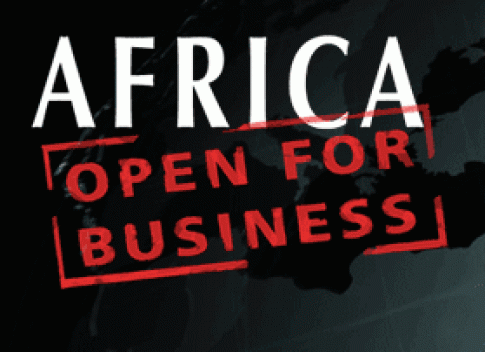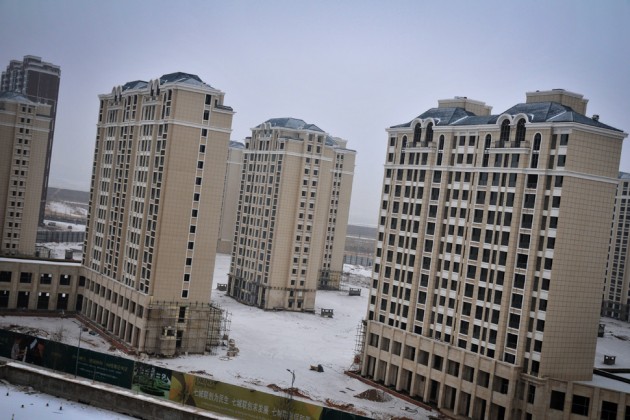For years, Africa elicited images of plight and poverty, particularly the Sub-Saharan regions. Today, a continent renowned for civil wars, child soldiers and coups is the scene of impressive growth. The rise of Africa represents an opportunity for not only Canadian businesses, but also for individuals to contribute to the continent’s development in a lasting way.
From Poverty to Promise
The poor image of Africa has its roots in the underdevelopment of Sub-Saharan countries relative to their northern neighbors on the continent and abroad. Development indicators like the Human Development Index (HDI) show a stark difference between the countries in the ‘Global North’ like Canada (0.911), Finland (0.892) and Italy (0.881); North African states like Morocco (0.591), Algeria (0.713) and Egypt (0.662); and their southern counterparts like Mauritania (0.467), the Central African Republic (0.352) and Niger (0.304).
There is another side to the continent, one that shows remarkable economic promise. More than a dozen of the region’s economies grew at higher than 6% per annum over the past six years. Trade with the rest of the world in 2011 was up 200% from 2000 levels. But if African growth and the good things that come from it are to continue, the problems the numbers don’t tell need to be addressed. One such problem? Rice.
Rice in Ghana: A Brief Case Study
[captionpix align=”right” theme=”elegant” width=”350″ imgsrc=”http://www.oxfam.org/sites/www.oxfam.org/files/imagecache/middlewidth/rice-harvest-ghana-460.jpg” captiontext=””]
In Ghana rice is a staple food, but the majority of the rice consumed is imported from overseas, preventing a potential driver of the economy from realizing its full potential. Domestic growers cannot compete with the (subsidized) rice and other products coming from North America and Europe, which is of better quality and lower price. For this reason, groups like Oxfam have long argued the problem lies not with the marketplace in Tamale, but with policy in Western capitals. They aren’t alone either. The Cato Institute, an organization “dedicated to the principles of individual liberty, limited government, free markets and peace,” published in 2007 10 points arguing for an end to farm subsidies. Number five argued agricultural trade barriers damaged US and global security by hindering development overseas. Yet, for all the principled talk about removing these impediments to development, there is still little appetite in Washington to engage in the subsidy-ending talk.
An alternative to ending subsidies is to improve the quality and production of Ghanian rice to enable it to compete with imported products. If Ghanian rice producers were able to do these two things, they could increase their market share and grow their businesses. But small-scale farmers who operate in the informal sector do not necessarily have access to credit for investment in improved production techniques. In addition to micro-finance programs already in place, foreign investment targeted at providing small-scale producers with the capital they need to expand their production could provide impetus for growth. Rather than recent plans to encourage big agri-business investment in large-scale production, which has ruffled feathers, focusing on small-businesses is more likely to reap benefits for African businesses and western investors while contributing to development on the continent.
Investing for Profit and Purpose
Social Investment Funds (SIFs) are one of the ways Canadians can channel their investments to promote small-business growth in Sub-Saharan Africa. One such organization is Kulemela Investments, the brainchild of a group of former Engineers Without Borders Canada staff. Kulemela will seek to provide 7 percent returns per annum from agribusiness investments between $10,000 – $200,000 in Ghanian rice, poultry, pineapples and maize. These social investments aren’t about charity, but rather satisfying financing needs in a way that turns a profit for both parties. It represents a shift in thinking, away from the donor-recipient model of development to one without pretenses about parties’ motivations.
Those who feel attached to the present model of assistance should remember that Official Development Assistance (ODA) and other forms of aid to developing countries have always been given with donor interests in mind. For one, aid can be ‘tied’, meaning it must be used to purchase from a specific country’s companies or for a given purpose. Tied aid is significantly less efficient than its untied counterpart since it increases administrative costs and restricts procurement options. For example, the terms of a $10 million aid package to a developing country may require $8 million of it to be spent on goods and services produced by the companies registered in the donor country. Thankfully, the OECD reports that levels of tied aid have fallen drastically.
On the Canadian front, there has been much talk about the recent incorporation of the Canadian International Development Agency (CIDA) into the Department of Foreign Affairs and International Trade (DFAIT). There have also been questions about the Canadian government’s motivation for selecting specific ‘Countries of Focus’ which Canada’s development efforts are now centred upon. Some commentators have argued that the selective nature of assistance represents efforts to align Canada’s development work with trade interests. While it’s too early to see, the question remains, will our trade policies be part of a coherent approach to Canada-Africa cooperation on development, or will economic self-interest undermine development initiatives?
In the case of social investment, it may be that profit and principle align. Direct investment in small-scale businesses throughout the continent has the potential to lead a shift in international development. The focus is on strategies that provide entrepreneurs in developing countries with the financing they need to expand their business, and provide strong returns for Canadians who put up the cash. This change in thought and practice could also put development decisions in the hands of ordinary citizens and maximize their agency.
Investing in Africa: Promise, Principle and Profits
Africa is on the rise, and Canadians have the opportunity to be a part of it. If small-scale businesses can get the support they need to grow and fuel African economies, a continent that has a reputation for poverty may soon be the site of great prosperity. Social investment initiatives like Kulemela are avenues for Canadians to directly finance this growth, providing impressive financial returns as well as development dividends. It’s a fresh take on Canada’s assistance to developing countries, and may just change the way we ‘do’ development.




